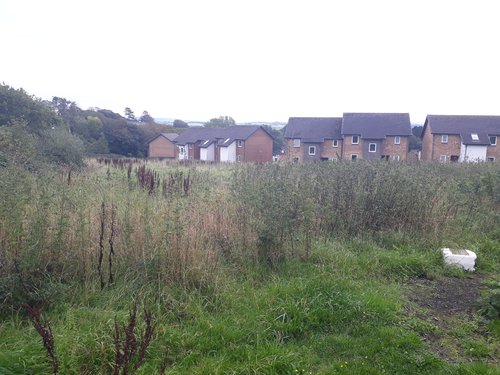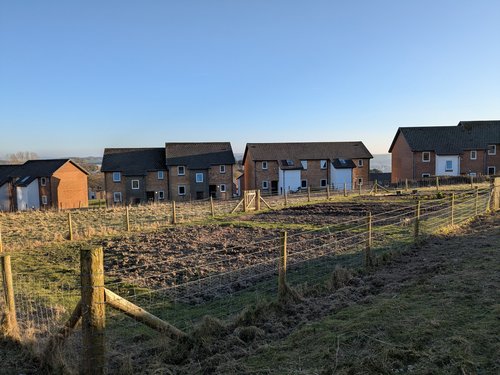Digging for History
The Department of History and Welsh History at Aberystwyth University has used a National Lottery Heritage Fund grant to run a year-long community project exploring the history of Aberystwyth during the Second World War. Sian Nicholas reports
Wartime allotments have a long tradition in Aberystwyth, with the fields around the National Library, for instance, turned into growing plots during the First World War. And we were hugely fortunate when the University Farms offered us an undeveloped field nearby. Although initially daunting – overrun by brambles, nettles and rabbits – we soon realised the potential of this site for a volunteer-led experiment in living history.
Unfortunately, our start date coincided with the Covid lockdown, requiring an urgent rethink of all our planned indoor activities. However, if we couldn’t Make-Do-And-Mend, perhaps, we thought, we might Dig for Victory?
So, in early 2021, we launched the AberWW2 allotment garden, modelled on a 1942 Ministry of Agriculture leaflet instructing householders how to turn their back gardens into year-round vegetable plots. Some adaptation was needed – wartime gardeners, it turns out, were enthusiastic sprayers of chemicals, mostly now illegal – though it was nice to find so many old seed varieties still available. We grow organically, keeping to the old tradition of sowing in strict rows, but adding companion plants such as nasturtiums and marigolds to provide colour and attract insects. We don’t have space to store our crops, so we donate surplus vegetables to local food banks.

(Left) October 2021 / (Right) March 2025

Now in our fourth year, the AberWW2 garden is almost unrecognisable from its early days, boasting a well-stocked toolshed, a water tank and a (much-needed!) rabbit-proof fence (provided, with grateful thanks, by Tyfu Dyfi). We have had valuable help from Ysgol Gatholig Padarn Sant, Ysgol Gynradd Plascrug, and our new Ysgol Penglais gardening group. We continue to develop our Living History project, with a heritage fruit orchard and (in association with the Aber Conservation Volunteers) a new Indigenous American Milpa/’Three Sisters’ plot of corn, squash and beans; we hope one day to plant a medieval herb garden. Above all we rely on enthusiastic volunteers who show up week after week to weed, dig, plant and harvest, with no reward other than the veg they take home with them. Meanwhile the value of our initial experiment has widened far beyond the historical: an opportunity to work collaboratively, to watch the changing seasons, and to enjoy the sense of achievement and wellbeing that comes with seasonal growing.
If you would like to know more, please contact me: shn@aber.ac.uk.